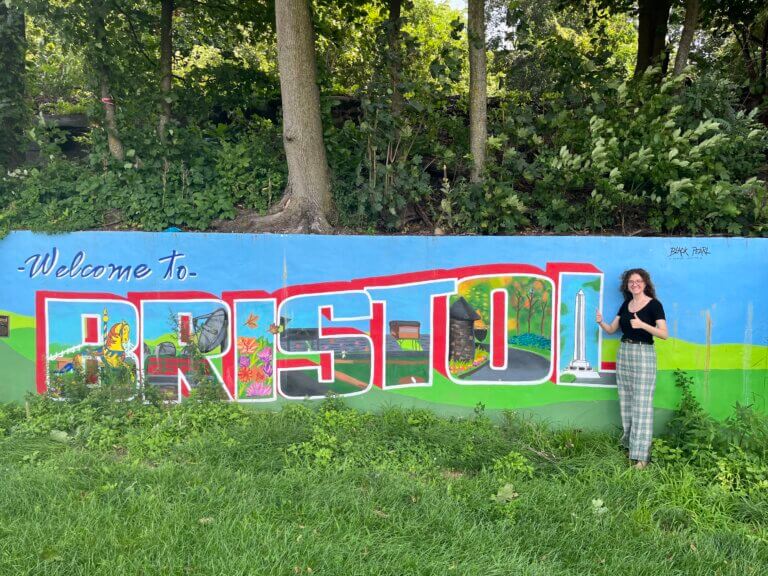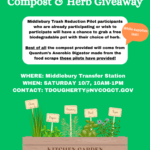
Exploring Passions & Insights
Introducing “People Behind the Plans,” our new feature where we spotlight the dedicated planners, administrators, and land use staff shaping our region. Discover their insights, stories, and the heart they bring into our community!
Meet Emily Bigl. Emily has a background in Environmental Studies and Geographic Information Science from UConn. Emily joined the NVCOG during the summer and will be leaving her mark as a Land Use Fellow. Read on for a glimpse into Emily’s unique journey and contributions to regional planning.
A Conversation with Emily Bigl
Q: Tell me about your role as a Land Use Fellow
Hi! I’m Emily, I’ve been working this summer with the Naugatuck Valley Council of Governments as a Land Use Fellow. My background is in Environmental Studies and Geographic Information Science. One of the many things I love about this career path is that it allows me to collaborate with so many different people from various backgrounds.
Here at NVCOG, I support the Community Planning Division in a variety of land use initiatives such as outreach, regulation analysis, and coordinating land use training for commissioners in our region.
Q: What sparked your interest in land use and planning?
While my background is not in land use and planning, I developed an interest in the field during a summer fellowship I completed with Sustainable CT in 2022.
During that fellowship, I was able to apply my environmental knowledge to the real world while helping cities and towns become more environmentally conscious. Town planners and commissioners were a significant portion of the demographic I collaborated with during my time at Sustainable CT, so I was able to gain a deeper understanding of the symbiotic relationship between land use and sustainability.
Q: What are some projects or initiatives you’ve been involved in during your time as a Land Use Fellow?
During my time as a Land Use Fellow, I had the privilege of being involved in several impactful projects and initiatives. One notable endeavor was the coordination of the upcoming Land Use Training program. This program serves as an opportunity for commissioners in our region to attend training sessions for free and obtain certification designed to satisfy the requirements of CGS Sec. 8-4c.
My role extended to various aspects of the program. I coordinated outreach efforts, engaging with commissioners and stakeholders to raise awareness about the training and its benefits. Additionally, I contributed to projects on the communication and design fronts, ensuring that the training materials were clear and engaging. By facilitating accessible and high-quality training for land use commissioners, we are not only contributing to their professional development but also raising the overall standard of planning practices in the region.
Q: Could you provide an example of how your work as a Land Use fellow involved collaboration and connections within the region?
One example that highlights the collaboration and connections within the region during my time as a Land Use Fellow involves a special connection I had with a city planner in our region. This city planner had been my professor in the past and had even written me letters of recommendation. Over the summer, he graciously invited me for a tour of city hall where he walked me through various projects and initiatives he was leading. It was a great opportunity to see the practical applications of the concepts he had taught me during my studies. The exchanging of knowledge and support through connections like these not only enhances great relationships, but it also can lead to more effective and holistic approaches to regional land use planning.
Q: Can you share any standout insights from your time in this role?
Regional land use planning, akin to environmental studies and sustainability, embodies a proactive approach to harmonizing development with the wellbeing of both local and neighboring communities. Just as sustainable practices aim to balance resource use and ecological preservation, regional planning seeks to strike a balance between growth in one area and its potential impact on surrounding municipalities. By fostering cooperation and considering the interconnectedness of ecosystems, economies, and social structures, these disciplines align in their pursuit of a holistic and enduring approach to shaping our built environment while safeguarding the broader societal context.
Q: How has this experience prepared you for feature endeavors?
NVCOG is an organization staffed with professionals who truly care about the wellbeing of their region. Seeing firsthand how genuine relationships between NVCOG staff and municipal staff are formed and maintained has been something I will always value and apply to future professional relationships. One of the lessons drawn from my experience over the summer is that challenges should not be interpreted as roadblocks or barriers, but rather as opportunities to innovate and collaborate. I think these lessons and interpersonal awareness will carry me far, not only in my professional career, but in my personal life as well.
Q: What message would you like to share with your fellow land use professionals and colleagues?
As I embark on the next chapter of my journey, I’d like to convey my deep gratitude to my colleagues and fellow land use professionals in NVCOG for giving me the opportunity to not only expand my understanding of regional planning and apply it in practice, but also build meaningful relationships along the way.
The collective efforts of all NVCOG divisions have shaped landscapes and communities, leaving lasting impacts that benefit the region immensely, and I’ve been able to experience that firsthand. I would like to thank NVCOG for fostering an environment of mutual learning and for supporting my growth in the land use field. I truly had a wonderful summer at NVCOG, and I wish all the best for my colleagues.


